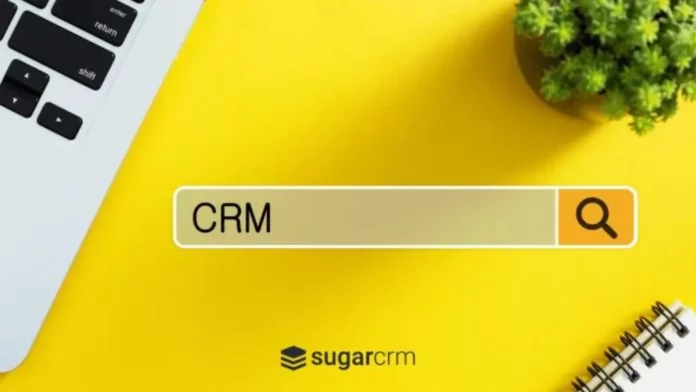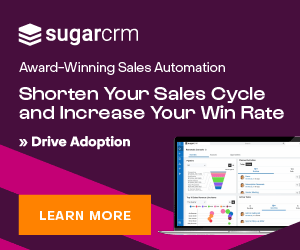Is it time to Switch Your CRM?
Your company and software needs rapidly evolve. It would make sense for companies to adopt change as quickly as necessary, but change never comes easy. According to recent data, only 34% of change initiatives succeed. The same source claims that 47% of organizations that integrate change management are more likely to meet their objectives than the other 30% that did not incorporate it. So, why are companies so reluctant to change? It may come down to the fact that humans show aversion towards change, and businesses are ultimately drawn and managed by humans. One in three CEOs failed to achieve the desired outcome from past transformation initiatives. Intimidating, isn’t it?
Thus, there’s no wonder that businesses still manage their operations with slow, fragmented CRM software that burdens their growth and advancement. Switching to a new CRM offers a series of advantages. Still, many change management initiatives are not even born due to organizations’ inability to spot the red flags above their internal software (or Excel sheets, in some cases).
If you, like many other decision-makers within companies worldwide, still think that you don’t need new CRM tools to aid your operations, we have prepared a few tell-tale signs that may help you spot those red flags. The list is not exhaustive but is a good starting point for your evaluation process.
Gaps Between Your CRM System and Processes
Sometimes, companies outgrow their CRM software, which is a good indicator that you’re doing business right. Congrats! But, in the long run, this might hinder your organization’s expansion. So, even if the tool you are currently using might have been just the right solution a year or two ago, have a look and see how it aids your internal processes now.
- Does it help streamline internal operations?
- Does it aid cross-departmental collaborations?
- Is it user-friendly, fast, reliable, and easily accessible?
Not meeting these criteria means that you have an outdated CRM on your hands. Instead, look for CRMs with flexible business process management (BPM) workflows that seamlessly allow cross-departmental collaboration by integrating with solutions specific to other departments (Sales, Marketing, and Customer Support).
Limited or Unreliable Data
What does your data look like? Once your operations expand, so should the data available within your CRM and how you handle said data. Suppose you look at your dashboards and reports and notice you are managing the same data types and parameters as when you started your CRM journey. This is another sign that you should investigate other solutions that better fit your current situation. Here’s what a high-performing CRM should be doing in terms of data:
- Capturing data from multiple entry points: sales, marketing, and support interaction data should be captured and stored;
- Compiling internal data (see above) with third-party data for a complete and accurate view of your business, customer needs, market, and industry trends;
- Data-based prediction capabilities such as forecasting, marketing initiative possible outcomes, possible account-based customer support inquiries, etc.;
Siloed Systems
How many times has an account you want to close an upsell/resell with contacted customer support over the last three months? If you can’t tell by taking a quick glance at your dashboard, you might be dealing with siloed software.
CRM tools should offer all the information you need to close a deal within seconds without having to contact a support representative or your marketing colleague. Yes, the more data enters your systems, the more difficult it is to make sense of it. But this is where your CRM tool should step in and do the heavy lifting: analysing data and offering all departments the information they need to succeed at their tasks, big or small.
And while every department has specific tools and software, seamlessly integrating them for a complete view of your audience and customers is the cornerstone of a CRM built to grow with your company. Besides, such tools are an excellent way to deter conflicting or duplicate data, manual data entry, and inefficient workflows.
Lack of Reporting and Forecasting Visibility
Expanding on your CRM’s reporting and forecasting capabilities should leave no blind spots and help you ditch the guesswork.
In simpler terms, an effective CRM tool should track sales and marketing activities throughout the entire customer journey. It should give you clear insights into which marketing initiatives helped push prospects down the funnel and which ones prevented prospects from abandoning their journey. Moreover, it should help you predict which sales will likely close faster at a higher value. Forecasting capabilities allow your sales reps to focus on the account that matters when it makes the most sense. Short and long-term forecasting capabilities are relevant here, so you should have appropriate and dynamic fields like Probability, Volume, and Status.
Lack of Workflow Automation
Some CRMs just don’t age well. They are glorified address books with fancy interfaces. If your CRM lacks workflow automation capabilities, you prevent your business from meeting technological demands.
To give your organization a competitive edge, look into CRM solutions that help automate critical milestones in your customer journey and internal processes. Automated customer follow-up tasks, marketing outreach, departmental approvals, alerts and reminders, and integrations with your email client all contribute to decreasing manual tasks and helping your teams gain back the time for the operations that need their undivided attention. These key processes help you generate and convert leads faster with fewer resources.
If your tool is not delivering automation and system integration, you’re missing out on high-value CRM functionalities.
Your CRM Limits Your Flexibility
Working in a “fast-paced” environment might not be every employee’s dream job, but truth be told, we are always on the move. And your CRM should be keeping up with you. Traditional brick-and-mortar operations aren’t the only reality of businesses today. Moving online has impacted how companies carry out their daily tasks, and accessing systems on the go is a must-have in digital ecosystems.
If your CRM makes it difficult for your employees to work remotely or hinders their movement and flexibility in the field, you might have outgrown it. Search for solutions that are flexible and support multichannel access.
You Don’t Receive Ongoing Support
Our last point closes the circle: the fear of change keeps companies from switching. But this fear is not superficial. It goes deeper and is mainly rooted in decision-makers’ fear of lacking support in planning, implementation, and beyond. If you need help remembering when you last received support in your CRM journey, upgrading to a newer version of your legacy system should be out of the question. Some providers no longer offer ongoing support and development. Some might only provide pay-per-update support, a temporary fix for your issues. Over time, the lack of ongoing support will generate compatibility issues with other core systems.
Look for vendors that are ready to enthusiastically take over your CRM endeavours. Let them help you craft your evaluation, implementation, adoption, and support strategies. And, preferably, treat and value you like humans, not like assets in their client portfolio.
Should SugarCRM Take Over Your CRM Project?
If you recognized your company and legacy system in the points above, we probably should! We are experienced in delivering CRM tools and more to enterprises in many industries while closely analysing their unique needs and business requirements.
Book a demo and see how you can switch your CRM easy, pain-free, and sweet.






